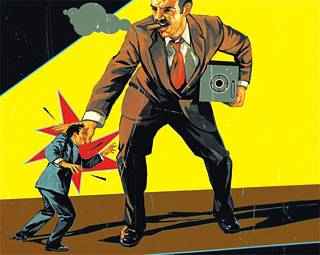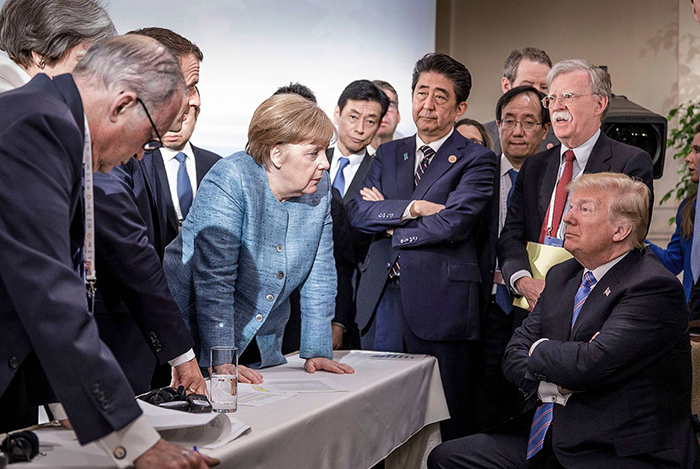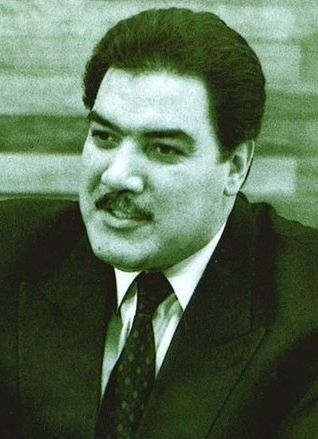 The recent interest in a basic income (BI) parallels the suddenly growing acceptance of marijuana. Could this be more than a coincidence? In the 1920s--30s, the idea of government intervention to regulate the economy was right down there with frivolous use of stimulants as the devil’s work.
The recent interest in a basic income (BI) parallels the suddenly growing acceptance of marijuana. Could this be more than a coincidence? In the 1920s--30s, the idea of government intervention to regulate the economy was right down there with frivolous use of stimulants as the devil’s work.
Before WWI, the pious moralizing in the face of increased drunkenness had even achieved a ban on all alcohol (more or less), which continued (more or less) till 1927 in Canada (in the US 1933). Marijuana was suddenly ‘discovered’ and was banned in 1923 (in the US 1937), and unlike alcohol, remained that way, though the ban was flouted even as consumption grew rapidly in the heady post-WWII years, when the youth briefly took control of culture, if only in the explosion of energy that the baby boomers brought en masse.
Now, in the space of a few years, since the election of Trudeau jr, both bits of the devil’s work are now widely accepted, and government programs are/were tentatively being put together to make them part of our daily lives. This article deals with the basic income campaign and its radical implications for the way we think about the economy. The marijuana trip comes later. But you can bet they are two sides of one coin, marijuana the yin to BI’s yang.

 How to explain the welter of contradictions in US politics these days?
How to explain the welter of contradictions in US politics these days? In 1987 Najibullah announced a ceasefire, a new constitution, an appeal for a coalition government with the fractious opposition. Najibullah’s rule is still fondly remembered as the best period in recent history by Afghans old enough to know. He had moved forward since he took over from Karmal in 1985, with a new constitution making Islam the state religion. He was an able commander, miraculously staving off the insurgents, leaving areas to local tribal leaders, who quickly restored pre-communist traditional village governance, settled down, and refused to join in the now Taliban-al-Qaeda world jihad.
In 1987 Najibullah announced a ceasefire, a new constitution, an appeal for a coalition government with the fractious opposition. Najibullah’s rule is still fondly remembered as the best period in recent history by Afghans old enough to know. He had moved forward since he took over from Karmal in 1985, with a new constitution making Islam the state religion. He was an able commander, miraculously staving off the insurgents, leaving areas to local tribal leaders, who quickly restored pre-communist traditional village governance, settled down, and refused to join in the now Taliban-al-Qaeda world jihad. 1978, 1988 and 1998 were fateful turning points which resounded around the world. All centred around Afghanistan. Hollywood, always a useful barometer, was in sync in a curious way. The film
1978, 1988 and 1998 were fateful turning points which resounded around the world. All centred around Afghanistan. Hollywood, always a useful barometer, was in sync in a curious way. The film  To better understand the threat that Zionism poses to the world, and especially Iran, allow me to turn to a historical analogy. The scenario is eerily reminiscent of the late-1930s, as the earlier aggressive, racist state, Nazi Germany, was allowed to pursue its selfish, warlike agenda against its peaceful neighbors, despite its agenda of world war. The actors in that drama were Nazi Germany versus the Soviet Union, the latter being the only credible peaceful resistance to fascism. Britain, France, and the US refused to stand up to the threat to peace, mistaking the Soviet Union for the enemy, despite it being the only credible resistance to the Nazis.
To better understand the threat that Zionism poses to the world, and especially Iran, allow me to turn to a historical analogy. The scenario is eerily reminiscent of the late-1930s, as the earlier aggressive, racist state, Nazi Germany, was allowed to pursue its selfish, warlike agenda against its peaceful neighbors, despite its agenda of world war. The actors in that drama were Nazi Germany versus the Soviet Union, the latter being the only credible peaceful resistance to fascism. Britain, France, and the US refused to stand up to the threat to peace, mistaking the Soviet Union for the enemy, despite it being the only credible resistance to the Nazis.



